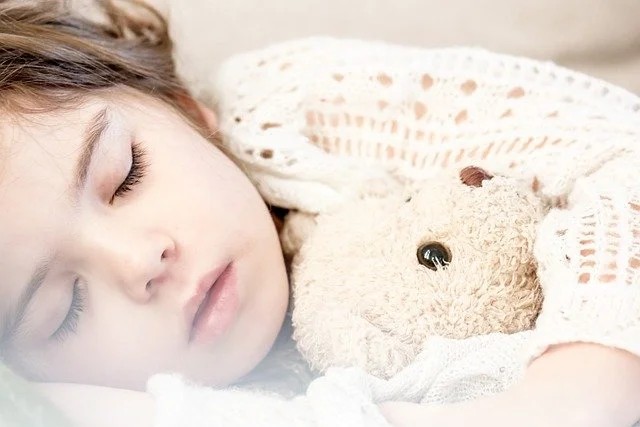Written by Aviva Tulasi
As a teenager, I was tired every day. I had chronic fatigue. It would take me hours to fall asleep and the sleep I experienced wasn’t restful. I experimented with my sleep routines and found nourishing habits that helped me regulate my sleep. Eventually, my sleep disturbances subsided.
Unfortunately, my experience as a teenager is a common one. Many people have sleep disturbances. According to the Cleveland Clinic, approximately 33% to 50% of the adult population experiences insomnia symptoms and 10% to 15% experience Chronic Insomnia (symptoms persist at least 3 nights a week for 3 months or more). Insomnia is approximately 1.41 times more common in women than in men. The prevalence is worse for older adults. According to 2019 review up to 75% of older adults experience symptoms of insomnia most likely due to the changes in hormones and circadian mechanisms.
Good sleep hygiene is influenced by everything that you do during the day and what you do when you go to bed. Yoga, which includes a balanced and active lifestyle for the body, mind and spirit, offers a holistic approach towards good sleep hygiene. Lisa Sanfilippo in her book, Yoga Therapy for Insomnia and Sleep Recovery, explains that yoga practices are not quick solutions for sleep issues but they offer long term solutions for the underlying issues that inhibit good quality sleep. Yoga offers tools to relax, recharge, rest and restore which are the cornerstones of sleep. A growing field of research is starting to quantify the impact of yoga and mindfulness on good sleep hygiene. National Center for Complementary and Integrative Health (NCCIH) highlights that relaxation techniques can be beneficial for insomnia. Yoga, mindfulness and relaxation techniques are generally safe and have not been associated with worsening of sleep problems or increased adverse effects. However, NCCIH warns that evidence of effectiveness is still limited.
Listed below, in no particular order, are a few yoga and mindfulness practices that support good sleep hygiene. Experiment with what works for you. Working one on one with a yoga therapist can help you create a sleep hygiene routine that supports you.
Relax the body
Tense and release of muscles, counting the breath, eye exercises or gentle yoga poses help to relax the body.
Reducing tension in the body helps to shift the mind from external stimuli to internal focus.
Yin Yoga in the evening is a great way to decompress and get ready for sleep. The next Friday Night Yin Yoga is February 17th.
Relax the mind
Mindfulness practices that promote less reactivity to our thoughts and emotions can lead to repatterning habits that contribute to challenges with restful sleep.
A regular yin practice brings a sense of watching thoughts without reacting. Luckily, Dogwood Studios offers monthly Friday evening Yin Yoga.
Guided meditation such as Yoga Nidra, Sleep Stories from Insight Timer, or repeating a mantra/affirmation interrupt the reactivity that happens when we focus on the wandering thought process. This can bring focus and relaxation to the mind.
Get outside.
Spending 30 minutes each day in natural light in the morning helps to realign your circadian rhythm. Even 5 minutes helps.
Maintain a natural stress hormone cycle.
Increasing your heart rate with yoga in the morning properly increase cortisol and adrenaline levels to wake up.
The tools of yoga promote negative stress reduction allowing cortisol and adrenaline levels to decrease throughout the day so you are ready to fall asleep at night.
Follow a regular routine.
The body loves regularity. Going to bed at the same time each day and waking up at the same time helps the body learn when it should release its sleep hormones.
Nourish the body-mind-spirit before going to bed
Warm baths, oil massage, petting your furry friends or full yogic breathing connects you to the present moment and activates the parasympathetic system that controls the rest and digest function of the body.
So many different factors affect sleep hygiene. The quality and quantity of sleep can be interrupted by negative stress, health conditions, anxiety, overuse of electronics, staying up too late, sleeping during the day, medications and many other things. Factors that negatively impact your sleep hygiene are unique to you. Therefore, your approach to good sleep hygiene might differ from others.
If you are experiencing a negative change in sleep quality or quantity it is important to talk to your medical provider. The conversation between you and your doctor can help you figure out the uniqueness of your sleep issues and approaches you should take.
Reach out to us with your questions at info@dogwoodstudioyoga.com. We are here to help.
Aviva Chaye Tulasi is a team member at Dogwood Studios. She is a certified yoga therapist (C-IAYT). She applies the teachings of classical yoga to reduce the effects of negative stress and to balance the nervous system. Email Aviva at yogawithtulasi@gmail.com with any questions.
SAM Sather, founder of Dogwood Studios, is a certified yoga therapist (C-IAYT), individualizes the yoga practice with appropriate modifications for participants’ unique bodies and medical histories with a focus on finding calm and improving health. She offers several live, online and in person yoga classes as well as private sessions so you can focus on your needs one-on-one.


